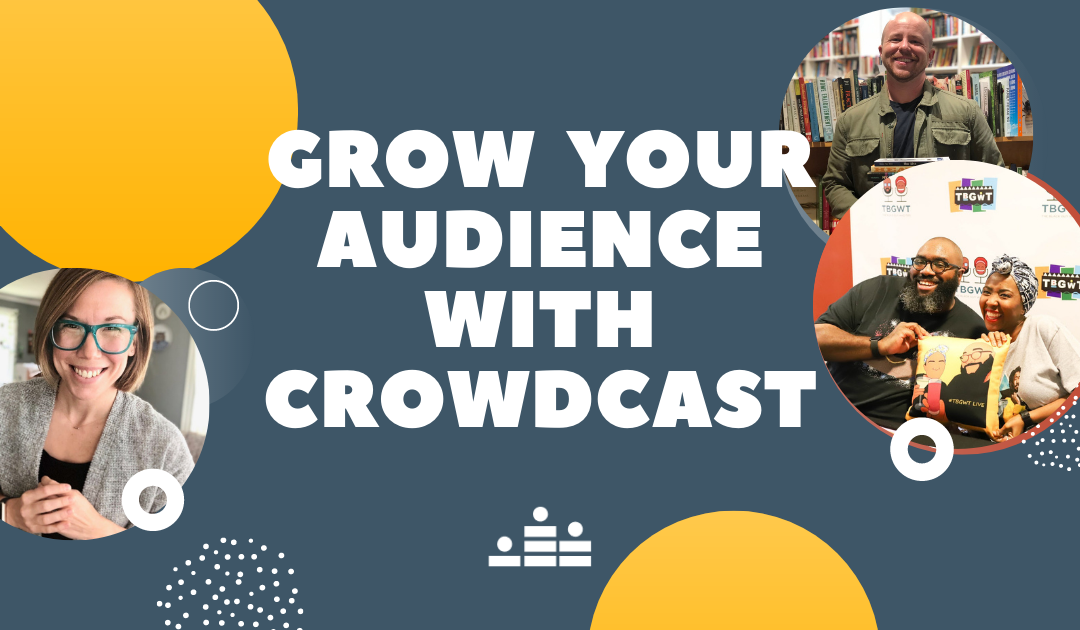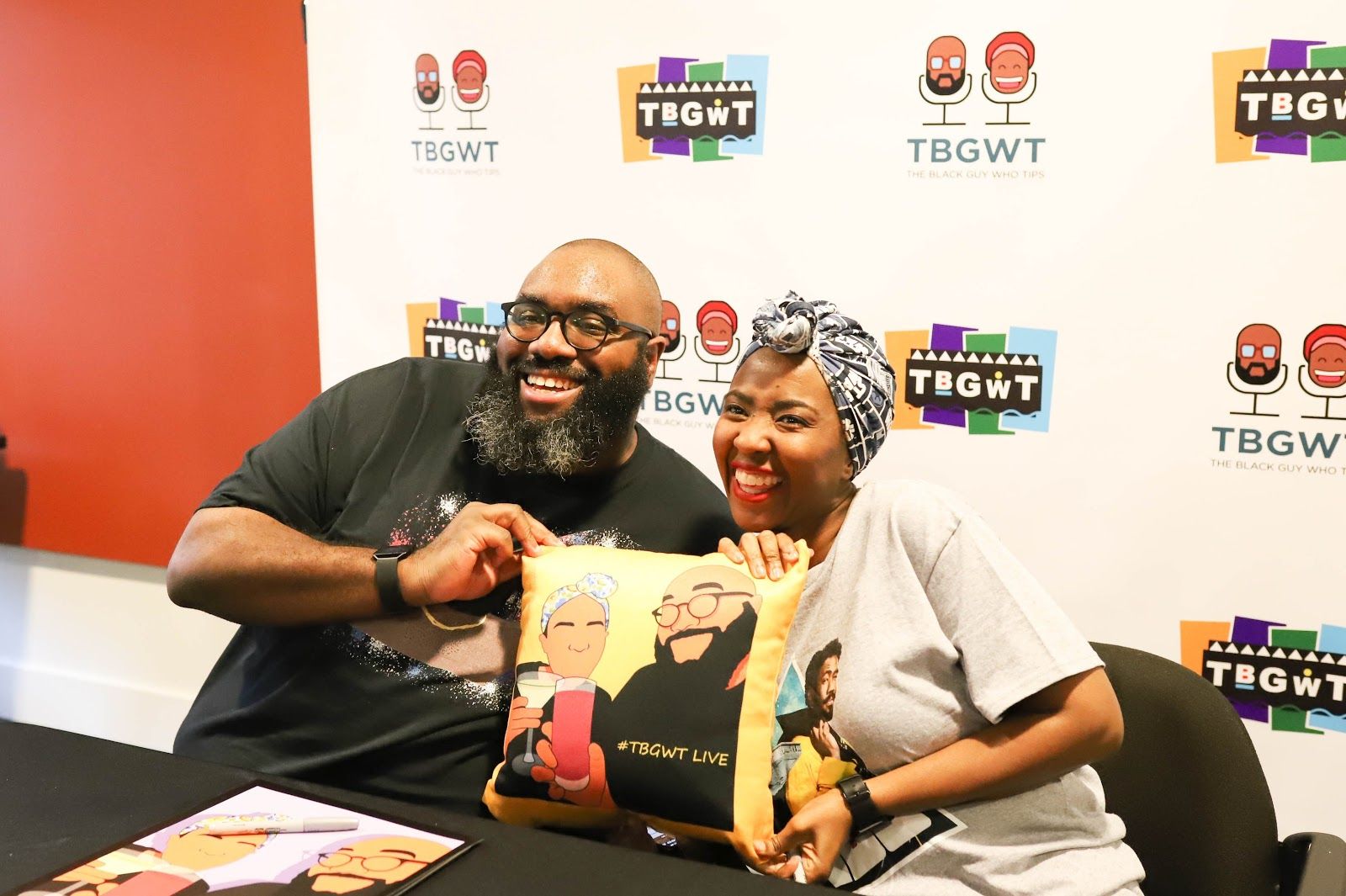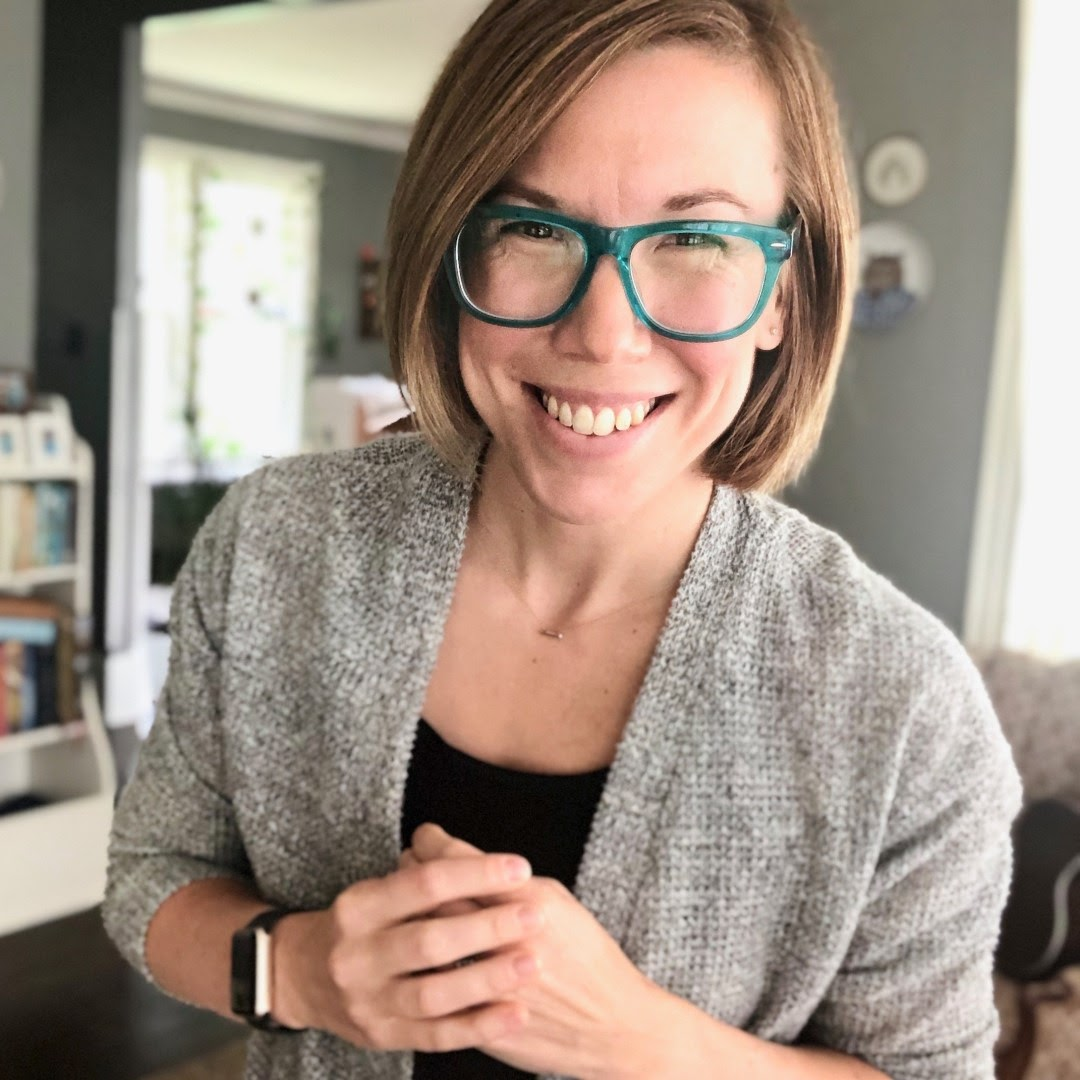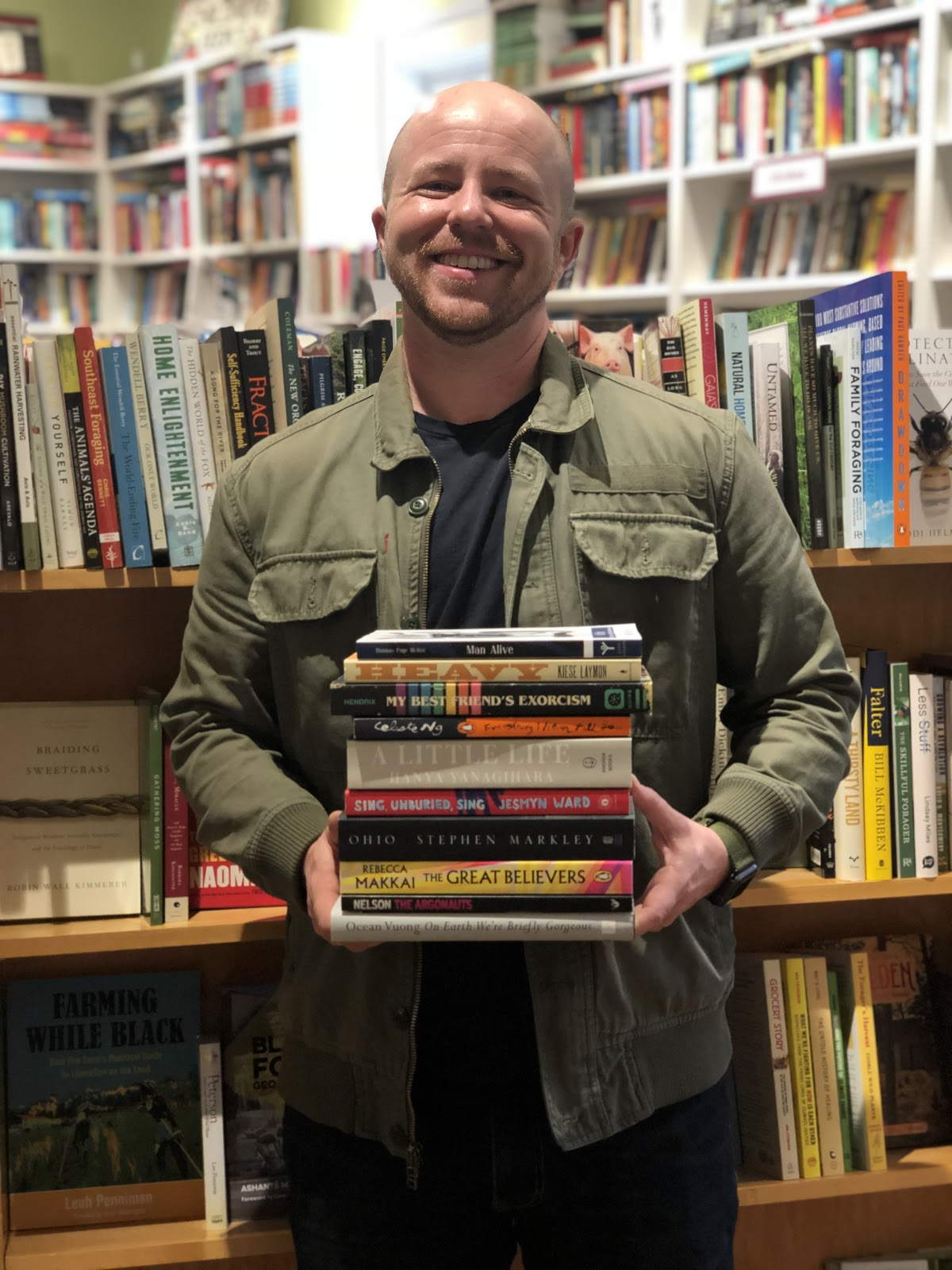
These days, it feels like everybody's creating content online.
While it's easier than ever before to start a blog or podcast, there's one question that keeps all creators up at night: how do you grow an audience around your content?
Making a living doing what you love starts with attracting loyal fans who will buy your products and support your work.
And with thousands of other creators publishing blogs and podcasts every day, standing out from the noise keeps getting harder.
Fortunately, there's one tool for growing an audience that lets you break through the noise and reach more people—without losing that personal touch your audience craves.
Host live video events with Crowdcast
Hosting a live video event brings your community together in a way that isn't possible with podcasts, written content, or social media. Whether you're hosting a hands-on workshop for 5 people or a live music broadcast for 50,000, live video lets you create an immersive, meaningful experience for your fans—no matter who (or where) they might be.
And the best part? Live video events work great for businesses and audiences of all shapes and sizes—and it's easier than ever to get started.
In fact, to prove how easy it is, we're sharing stories from three different creators running wildly diverse businesses, from the country's oldest feminist bookstore in Atlanta to a live daily comedy show.
Each creator uses live video in different ways to reach more people and bring their community together online. They've also been kind enough to share their best advice for how you can get started growing your following with live video.
So dust off that webcam, and let's dive into our first creator story!
How The Black Guy Who Tips built an avid podcast audience for their live show
When Charlotte-based husband and wife team Rod and Karen first thought about starting a podcast over a decade ago, they had no idea how their audience would receive it—or whether they would attract an audience.
"When we started, there were no Black podcasts, really. So it was like, are there no Black podcasts because no one wants to listen to Black podcasts? Or are there just no Black podcasts because no-one's really tried?" - Rod
After more than a decade of broadcasting their live comedy talk show The Black Guy Who Tips, Rod and Karen have done more than attracted a growing audience of followers; they've also turned the podcast into a sustainable business. The show has been featured on National Public Radio and Ebony.com, mentioned in The New York Times. They've even hosted their own live podcasting event at the Blumenthal Performing Arts Center in Charlotte.

Rod and Karen, hosts of The Black Guy Who Tips. Image via The Black Guy Who Tips
Much of Rod and Karen's success boils down to their dedication to consistency. They broadcast their comedy show five days a week, attracting upwards of 100 live listeners. With new episodes being shared so frequently, regular listeners become fast friends, and the community chat takes on a life of its own.
"Our fans are very loyal because when we go live, almost immediately the email goes out and people just will start jumping in no matter what time of the day or what time of the night. You can see them come in and be like, 'Hey, I'm on the subway. I want to, you know, join in' and they'll play the games. I really love that aspect of it." - Karen
The free show reaches between 6,000 and 15,000 downloads per episode, depending on the week. The show doesn't hold back when it comes to topics like racism or politics, either. Having a thriving community of supporters has helped Rod and Karen keep doing their job and broadcasting the show their way, without worrying so much about harassment.
"When we talk about the things we talk about, which you know, is politics, race in America, all this other stuff, we're talking about things that people may be sensitive about. But there are also groups of people who will harass you for whatever your stance is on this stuff." - Rod
Of course, it also helps that the show is side-splittingly funny. Audience-led games and inside jokes abound—Karen particularly enjoyed the episode where they first got their soundboard.
"Even when we're talking about a bummer topic, it doesn't have to make it a bummer live show. I think people really enjoy that aspect of it—the audience being able to get in on it with us and joke back and forth really adds something to it." - Rod
While some of their revenue comes from advertising, Rod is quick to point out that their core base of roughly 700 Premium subscribers keeps them in business. A few bucks a month unlocks access to live spin-off shows on topics like sports and nerd culture only for patrons, along with access to the entire back catalog of over 1,900 episodes of their show.
"So many people do podcasts now, it's really hard to thread that needle and make a living. So to not only have people listen and enjoy the show—to have people that want to sustain us and see us prosper—that's a big thing." - Rod
How What Works shares business insights through virtual conferences
Combing through the hype to grow a sustainable audience and business isn't easy—but it's a problem Tara McMullin has spent a decade helping to solve.
As the founder and host of What Works, Tara gives online business owners "a platform for people to share the challenges they're running into, the opportunities they've got, and get some feedback on their ideas. They can find out what has worked for other people in the past, and discover new ways to move their business forward."

Tara McMullin, founder and host of What Works. Image via What Works
Tara shares candid conversations with business owners on her free weekly podcast, diving deep into how different businesses work and sharing any lessons learned around topics like marketing or personal leadership. Most episodes are pre-recorded, but the handful of live podcast sessions have been "really successful."
"I come on and basically do a live version of the podcast from start to finish—introducing the show, introducing the guest, doing the interview. But I also bring in questions from the audience too, which to me is one of the best parts of doing a live interview—really getting the audience involved in the conversation and making it work for them." - Tara McMullin
Outside of the podcast, Tara uses live video to host virtual conferences for her paying community members. Every quarter the team brings members together with a multi-session Crowdcast event on one main topic—recent events include money in the new economy and brand building.
Tara says the most gratifying parts about each session are when the audience gets involved, and meaningful conversations lead to authentic connections.
"One of the things that [the audience] loves most is being able to talk to each other in the chat while the conference is going on. They like learning—obviously they're there to hear from whoever the speaker is—but I think they get as much value out of just talking to each other about whatever the subject is at hand than they do from the speaker, which is always a fun thing to see." - Tara McMullin
The virtual conferences have been very well received by the community. Out of roughly 600 subscribers, their latest event on money in the economy attracted a live audience of over 100 attendees. The results also last—community members continue discussing what they've learned for weeks after the event is over.
Beyond providing value for her community, the virtual conferences are also the perfect sales tool for Tara to grow her own audience and business. She shares snippets of past events with her email list to drum up interest for upcoming events and drive subscribers to become paying members.
"[The online conferences] are a major sales opportunity for us too. We know we can drive enrollment for new members around those conferences and say, 'Hey, if you want to join us for money in the new economy, now is the time to join.'" - Tara McMullin
While membership for the What Works Network might currently be closed, Tara continues to double down on live events. "There's something I find really energizing about Crowdcast—about the way I show up for my audience when I'm on Crowdcast," she explains. "We're working through some changes we want to make in terms of the live events that we offer inside the What Works Network. I am going back to leaning very heavily on live events and using Crowdcast more often."
How Charis Books captured their authentic vibe through live video
E.R. Anderson is no stranger to building a thriving community.
Since 1997, the executive director of Charis Circle—the non-profit arm of the Atlanta-based independent feminist bookstore Charis Books—E.R. guides the organization's mission of fostering sustainable feminist communities, working for social justice and encouraging the expression of diverse and marginalized voices.

Errol "E.R." Anderson, executive director of Charis Circle, holds live author discussions online.
Charis's welcoming vibe is a big part of the store's nonpareil success. E.R. has hosted regular author discussions and communal events in the store—but while Charis's commitment to disability justice and accessibility has guided their physical space, they never had the infrastructure to expand their reach online.
"For years, people have said, 'Oh man, I really wish I could come to that. But, you know, I live in Denver, or I live in New York, and there are other bookstores similar to Charis and other places, but none does exactly what we do." - E.R. Anderson
That was, of course, until COVID-19 hit.
After being forced to close their store and receiving little guidance from publishers, E.R. reached out directly to the authors the bookstore already had on their events schedule. The team worked with authors to transition each in-person event to live video—since transitioning online in April, Charis has hosted a dozen live events using Crowdcast—with many more on the horizon.
With each live event reaching an international audience of between 25 and 200 people—roughly on par with previous in-person events, according to E.R.—business has been booming.
Promoting the authors' books via Charis's online store during the livestream has helped the bookstore maintain its revenue while the doors remain closed.
"We're not losing any money by being closed to the public and just doing all online business." - E.R. Anderson
The non-profit side of the business is just as strong. While fewer people are donating than when E.R. passes a basket around during in-person events, higher donation amounts mean the non-profit arm is collecting more revenue, helping them continue investing in social justice in their community.
What E.R. didn't expect, though, is how well traditional in-person events have translated into live video. The ability to ask questions in real-time and hold public conversations in the chat meant Charis could maintain their unique homey vibe—even while reaching a much wider audience across multiple video platforms.
"I've been really impressed with how much people mention that the feeling of the events is not lost in translation—it still feels like a Charis event. It still feels very welcoming and homey, and they still feel connected to one another, even though they can't see people besides me and the speaker. People see one another's names or people they recognize and they say hi to each other in the chat." - E.R. Anderson
Even after the bookstore reopens and people feel safe going out again, E.R. plans to continue simulcasting their live events online. "We've heard from so many people, I hope you don't just go back to live events."
3 top tips for getting started with live video
I asked Tara, Rod and Karen, and E.R. what their #1 tip was for creators looking to kick off their first live video event. They shared some helpful advice and ideas—keep these in mind as you plan your first event.
Tip #1: Get clear on why people should show up
Before you start your live event, you need a clear idea of the value behind what you're offering—and you need to communicate that in your landing pages and promotional emails.
"It's not enough to just get on video and teach or get on video and answer questions," explains Tara. "When I see people miss the mark on live video events, it's typically because they've thought about what they want to present, as opposed to how it's going to impact the audience and why it's really valuable for their audience."
"If you want people to gather around a live video event, you have to focus on what's in it for them. What's going to be different after the session is over? What are they going to learn and experience? How is that going to change things for them on a day to day level?"
Tip #2: Avoid technical difficulties by testing your setup in advance
Working with authors of all different technical abilities, E.R. has had his fair share of hangups. "The first few people I worked with, we had some errors that caused some issues [with the events]. Now, I do an AV test with every person, even if they think they are really with it."
E.R.'s recommendation? Take the time to test your equipment and event setup before going live—and if you're hosting an interview, having your guest do the same.
"Give yourself enough time to really test out the technology before you get into your first event. Grab a friend, set up a fake event, and get them to test the AV with you, so you feel really comfortable."
Tip #3: Be consistent with how you show up
Rod and Karen's success didn't happen overnight—nailing their comedic formula has taken ten years of experimentation and showing up every day for their audience.
"It doesn't have to be as frequent as us, but just be there when you say you're going to be there. Say you're going to do a weekly show—it's gotta be important enough for you to sit down and do it weekly."
Bonus Tip: Just get started
No-one nails their first video. "Nothing is perfect when you first start," shares Rod—"to be honest, nothing's even really that good when it first starts. Think of your favorite TV show—the pilot episode is always everyone's least favorite."
Instead of aiming for polished perfection, Rod recommends starting with where you are right now.
"Just start with the equipment you have. Start with the time you have. Start with the abilities that you have. Then, you'll grow into it."
Start planning your first live video event today
Ready to kick off your first live video event? Awesome!
Crowdcast makes it easy to claim your channel and set your stage.
Grab your free 2-week Crowdcast trial, and start growing your audience today!
Sai
Founder & CEO — Building spaces for community.